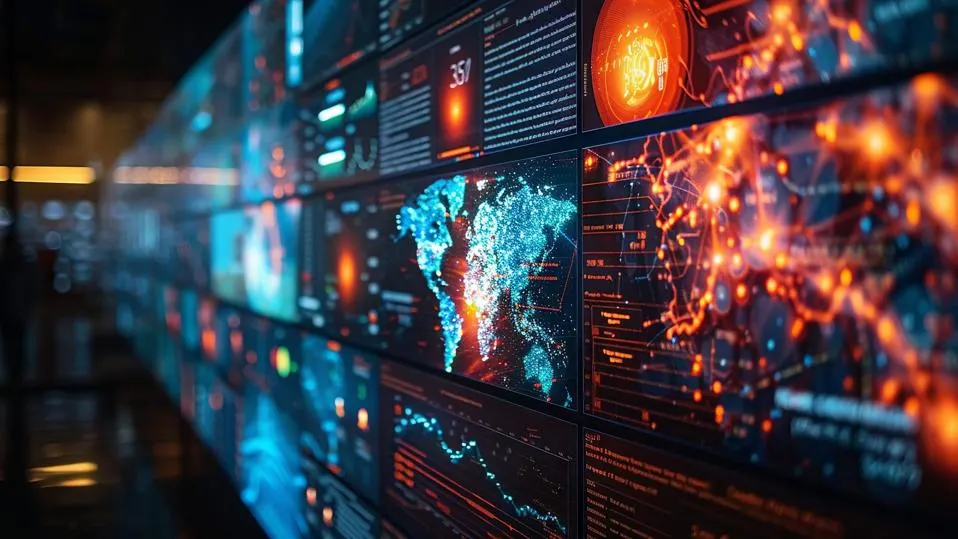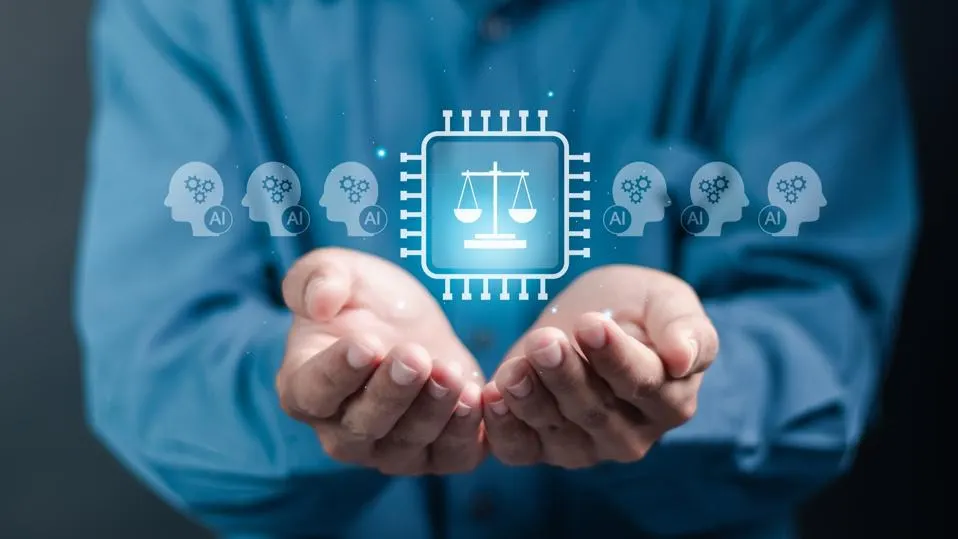The World On Edge: 5 Global Mega Threats That Could Reshape Our Future
27 August 2024
In an era of unprecedented global interconnectedness, humanity faces a perfect storm of challenges that threaten to reshape our world. From geopolitical power struggles to the looming peril of climate change, these mega threats demand our immediate attention and collective action. Let’s explore these threats one by one.

Power Struggles: The New Cold War
The global stage is increasingly resembling a high-stakes chess game, with major powers vying for dominance. The United States, China and Russia are locked in a complex dance of diplomacy, economic maneuvering, and occasional saber-rattling. This is not the Cold War of previous generations—it is a multifaceted contest across economic, technological, and ideological battlefields.
In addition to the established arenas of contention, such as the South China Sea and Russia’s invasion of Ukraine, recent developments in the Middle East have further complicated global relations.
But it's not just about international rivalries. Internal political divisions, particularly in Western democracies, are adding fuel to the fire. The United States, long considered a bastion of democratic stability, has experienced unprecedented political polarization. The January 6th Capitol riot and ongoing debates about election integrity have raised questions about the resilience of American democracy – a concern that reverberates globally.
AI And Tech Advances: A Double-Edged Sword
If you think your smartphone is smart now, just wait. The rapid march of artificial intelligence and other emerging technologies promises to revolutionize every aspect of our lives. But let’s not forget that with great power comes great responsibility.
The potential benefits are mind-boggling. AI-powered medical diagnostics could save millions of lives. Self-driving cars could dramatically reduce traffic fatalities. Advanced robotics could free us from mundane tasks, allowing more time for creativity and leisure.
But there is a catch: these same technologies pose significant challenges. Cybersecurity threats are evolving at a breakneck pace, with AI-powered hacking tools making even sophisticated systems vulnerable. The 2020 SolarWinds hack, which compromised numerous U.S. government agencies, was a stark reminder of our digital vulnerabilities.
Job displacement due to automation is another looming threat. A McKinsey report estimates that up to 800 million jobs could be lost to automation by 2030. While new jobs will undoubtedly be created, the transition could be painful for many workers and economies.
And let's not forget the ethical quandaries. As AI systems become more advanced, questions about privacy, algorithmic bias, and even machine consciousness will become increasingly pressing. The European Union AI Act is a step towards regulating these technologies, but we're still in uncharted territory.
Climate Change: The Existential Threat
If you think climate change is just about polar bears and rising sea levels, think again. It's a threat multiplier that touches every aspect of our lives.
Consider this: The World Bank estimates that climate change could force more than 140 million people to migrate within their countries by 2050. That's equivalent to the entire population of Russia on the move, creating unprecedented humanitarian and security challenges.
But it's not just about the future. We're already seeing the impacts today. The increasing frequency and intensity of extreme weather events – from the devastating Australian bushfires to the record-breaking heatwaves in North America – are providing a glimpse of our climate-changed future.
Food security is another critical concern. Changing weather patterns and more frequent droughts could lead to significant disruptions in global food supply chains. A report by the UN's Intergovernmental Panel on Climate Change warned that climate change is already affecting food security and could lead to price spikes and supply disruptions in the coming decades.
The Debt Crisis: Living On Borrowed Time
If you think your credit card bill is scary, consider this: global debt hit a record $307 trillion in 2022, according to the Institute of International Finance. That's more than three times the size of the global economy.
The COVID-19 pandemic has exacerbated this problem, with governments worldwide taking on massive amounts of debt to support their economies. While this was necessary to prevent economic collapse, it has left many countries in a precarious financial position.
Take Japan, for instance. Its debt-to-GDP ratio is over 250%, the highest in the world. While Japan has managed this high debt level for years, it's walking a tightrope. Any significant economic shock could trigger a crisis that would reverberate globally.
Developing countries are particularly vulnerable. The World Bank has warned of a looming debt crisis in low-income countries, with many at high risk of debt distress. A wave of defaults could trigger a global financial crisis.
Stagflation: The Economic Bogeyman Returns
Imagine an economy where prices keep rising, but your paycheck stays the same, and job prospects are bleak. Welcome to the world of stagflation – a toxic mix of high inflation, slow economic growth, and high unemployment.
We last saw stagflation in the 1970s, but some economists fear it could make a comeback. The COVID-19 pandemic has created a perfect storm of supply chain disruptions, labor shortages, and massive government stimulus – all ingredients that could potentially lead to stagflation.
Central banks face a dilemma. Raising interest rates to combat inflation could further slow economic growth. However, keeping rates low to stimulate growth could allow inflation to spiral out of control. It's like trying to steer a ship through a narrow channel in stormy seas – one wrong move, and you're on the rocks.
Looking Ahead: Navigating The Storm
These mega-threats paint a sobering picture of the challenges we face. But here's the good news: awareness is the first step towards action. By understanding these interconnected threats, we can begin to develop holistic solutions.
Addressing these challenges will require unprecedented global cooperation, innovative thinking, and a willingness to make tough choices. It will demand leadership from governments, businesses, and civil society. But most importantly, it will require each of us to play our part.
The future isn't written yet. With clear-eyed understanding, bold action, and a spirit of global solidarity, we can navigate these turbulent waters and build a more resilient, sustainable, and equitable world. The choice is ours.
Related Articles
Will AI Solve The World’s Inequality Problem – Or Make It Worse?
We are standing on the cusp of a new technological revolution. AI is increasingly permeating every aspect of our lives, with intelligent machines transforming the way we live and work.[...]
How You Become Irreplaceable In The Age Of AI
In a world where artificial intelligence is rapidly advancing, many of us are left wondering: Will AI take our jobs?[...]
Why Apple Intelligence Sets A New Gold Standard For AI Privacy
In the rapidly evolving world of artificial intelligence, privacy concerns have become a hot-button issue.[...]
Can Your Device Run Apple Intelligence? What You Need To Know
Apple's announcement of Apple Intelligence has sent waves of excitement through the tech world.[...]
10 Amazing Things You Can Do With Apple Intelligence On Your IPhone
Apple Intelligence is poised to revolutionize the iPhone experience, offering a suite of AI-powered tools that promise to make your digital life easier, more productive, and more creative.[...]
Agentic AI: The Next Big Breakthrough That’s Transforming Business And Technology
The world of artificial intelligence is evolving at a breakneck pace, and just when you thought you'd wrapped your head around generative AI, along comes another game-changing concept: agentic AI.[...]
Sign up to Stay in Touch!
Bernard Marr is a world-renowned futurist, influencer and thought leader in the fields of business and technology, with a passion for using technology for the good of humanity.
He is a best-selling author of over 20 books, writes a regular column for Forbes and advises and coaches many of the world’s best-known organisations.
He has a combined following of 4 million people across his social media channels and newsletters and was ranked by LinkedIn as one of the top 5 business influencers in the world.
Bernard’s latest book is ‘Generative AI in Practice’.










Social Media